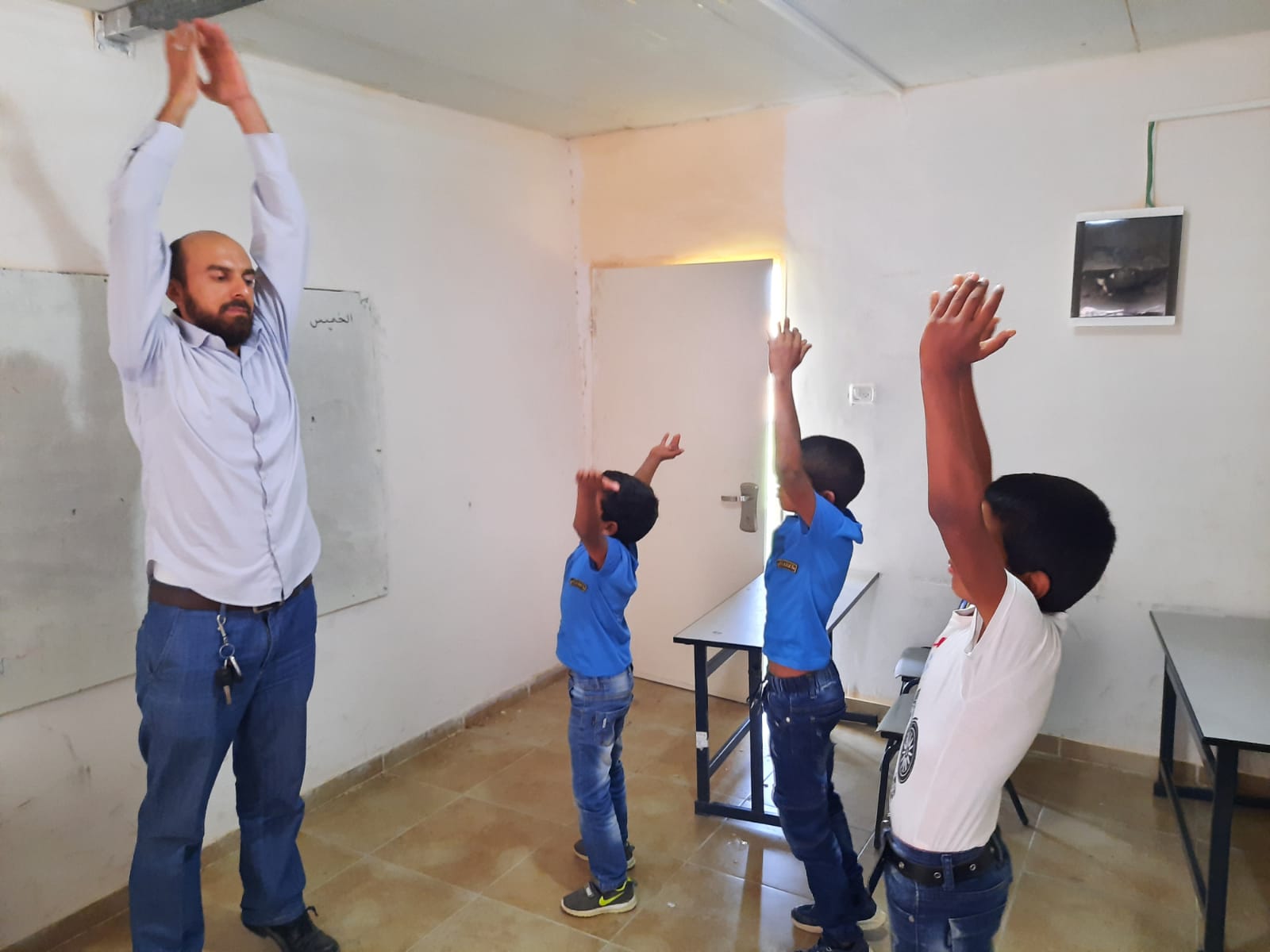Teacher Stories: O.M. - Jerusalem, Palestine
This story was collected as part of Teachers in Crisis Contexts (TiCC) Event Series to ensure that the voices and experiences of teachers working in crisis and displacement permeate all aspects of the event. For more stories, click here.
Together for a better tomorrow!
Name: O.M.
Role: Teacher
School: Al Muntar School
Location: Jerusalem, Palestine
My Name is O. M from Sheikh Sa’ad village- Jerusalem/ Palestine. I have a BA in English teaching methodology from Al Quds University. I have been a teacher for 8 years and I am working in Al Muntar School. The School is located in Al Muntar, one of the most hard to reach, vulnerable communities in Jerusalem. The school was built in 2016 in dire circumstances – the school buildings and the latrines are all in poor condition and it remains under threat of demolition. The school lacks the essential educational materials needed to offer quality education opportunities such as stationery, laboratory equipment, sport equipment, IT equipment and furniture.
The land where the village is currently located is declared as a Closed Military Zone. People living here are not allowed to construct any structure and the school is also not allowed to add any essential facilities as the school is under the constant threat of eviction. The community has been subjected to multiple waves of demolitions, but they have always rebuilt and remained in the area. The road to the school is off road, bumpy, hilly and not paved.
Similar to other teachers in this school, I have challenges due to the context of the school. I have to walk daily through this bumpy road to the school. Walking to the school is not that easy, specifically in winter when the rocks and the stones on the way become slippery or even in summer when it is extremely hot. The other option for us to access the school is to drive off road in unlicensed vehicles, which is dangerous, illegal, and unsafe. We are chased by the police. Many times, we have to flee and hide so as to not to be caught and imprisoned. Nevertheless, like many Palestinians, I still have hope that tomorrow will be better.
The students in the school lack all sorts of interaction with other communities due to the difficult context and access issues in their community. Their community and its school are far away from any sign of civilization. They experience fear day and night. They are afraid that in a moment, their school or homes might be demolished and they will find themselves with no school, or home!

In 2016, the Norwegian Refugee Council (NRC), selected our school to implement the Better Learning Programme (BLP) - NRC’s PSS- SEL Flagship programme. The school principal selected me to participate in the programme. I attended the BLP training workshop on how to manage a classroom with children who have gone through stressful and traumatic events through applying trauma sensitive methodologies. I mentioned to the NRC focal person for our school that the students are resilient and are used to these circumstances and they do not need such an intervention. Then, I decided to try it. I started implementation with one of the classes and I immediately observed the impact. The students felt relaxed and shared a lot about their feelings. I started to understand their behaviour and I started to build communication channels with them. I have been implementing the programme for 3 years and it is still effective.
My experience with BLP has supported me on an individual level as well. It helped me regain control of my mind and body and relax whenever I feel stressed. I practice the safe place, one of the BLP relaxation techniques, each time I feel stressed.
After the outbreak of COVID-19, it was challenging to continue implementation. I felt overwhelmed and somehow lost. NRC then started an initiative on creating a peer-to-peer coaching group to provide in-school support for the teachers implementing the BLP to support student psychosocial wellbeing and academic achievement.
I was happy about having a peer coach in my school who acted as a reference in planning and implementation. The peer coach supported me in solving problems and challenges that led to the successful implementation of activities and with an extremely positive impact. With the peer coach, we can ask, share, and learn from each other, we are a BLP cell.
The views expressed in this blog are the author's own.



